Roy Barreras speaks about Gustavo Petro's three years in office: "The government should have been for everyone; that hasn't happened."

Roy Barreras , as president of Congress, was the one who swore in Gustavo Petro as the new president of Colombia on August 7, 2022. That day, he asked that the government he helped elect be for everyone. He said, in an interview with EL TIEMPO, regarding the three years of the Petro administration, that this has not been done.
The former senator, who recently served as ambassador to London, asserts that there will be elections, but acknowledges that some officials are making unnecessary noises that do not benefit the Executive Branch. "This is Gustavo Petro's year," he insists.
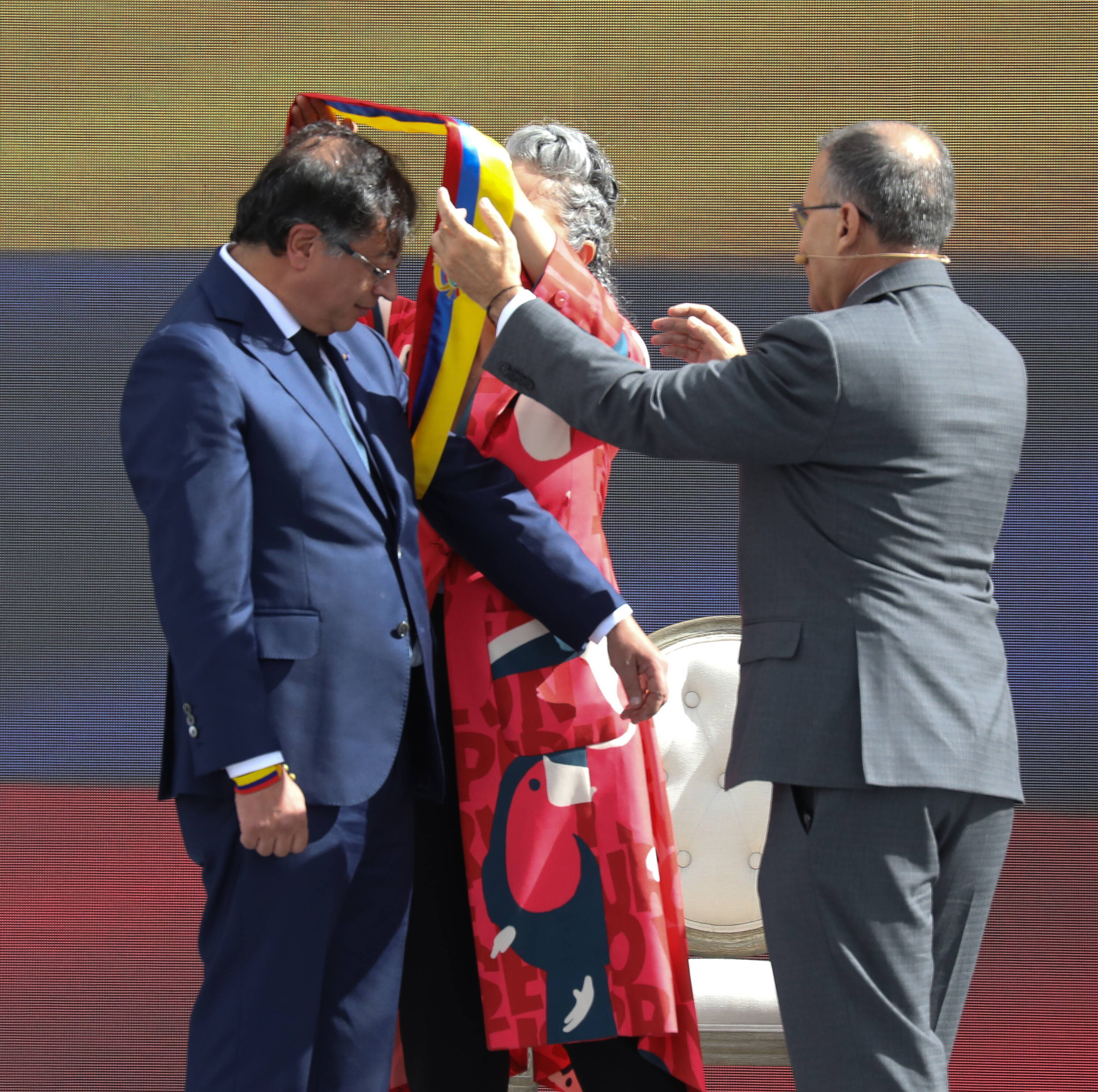
Roy Barreras swore in Gustavo Petro. Photo: Mauricio Moreno
There were two feelings. Three years ago, we took office as President Petro, and that Sunday, August 7, I said that the government I was inaugurating should be for the 50, 60 million Colombians, for everyone, not just for those of us who won. I also said that there was a desire for change that had to be fulfilled, and that the way to achieve it, without a doubt, was and is the social reforms that had to be processed in Congress, with respect for the institutions. The great paradox of anyone who seeks to govern, and I said this three years ago, is that change must be achieved without demolishing the institutions. In the first year, we did things well, progress was made in consensus, with a sense—which must be recovered—of tranquility, of change, but with stability.
And the second one? A certain helplessness at not being able to help. But, ultimately, it was the President's decision. From my liberal-social-democratic position, we supported a leftist president and, above all, a grassroots base that had always been denied and made invisible.
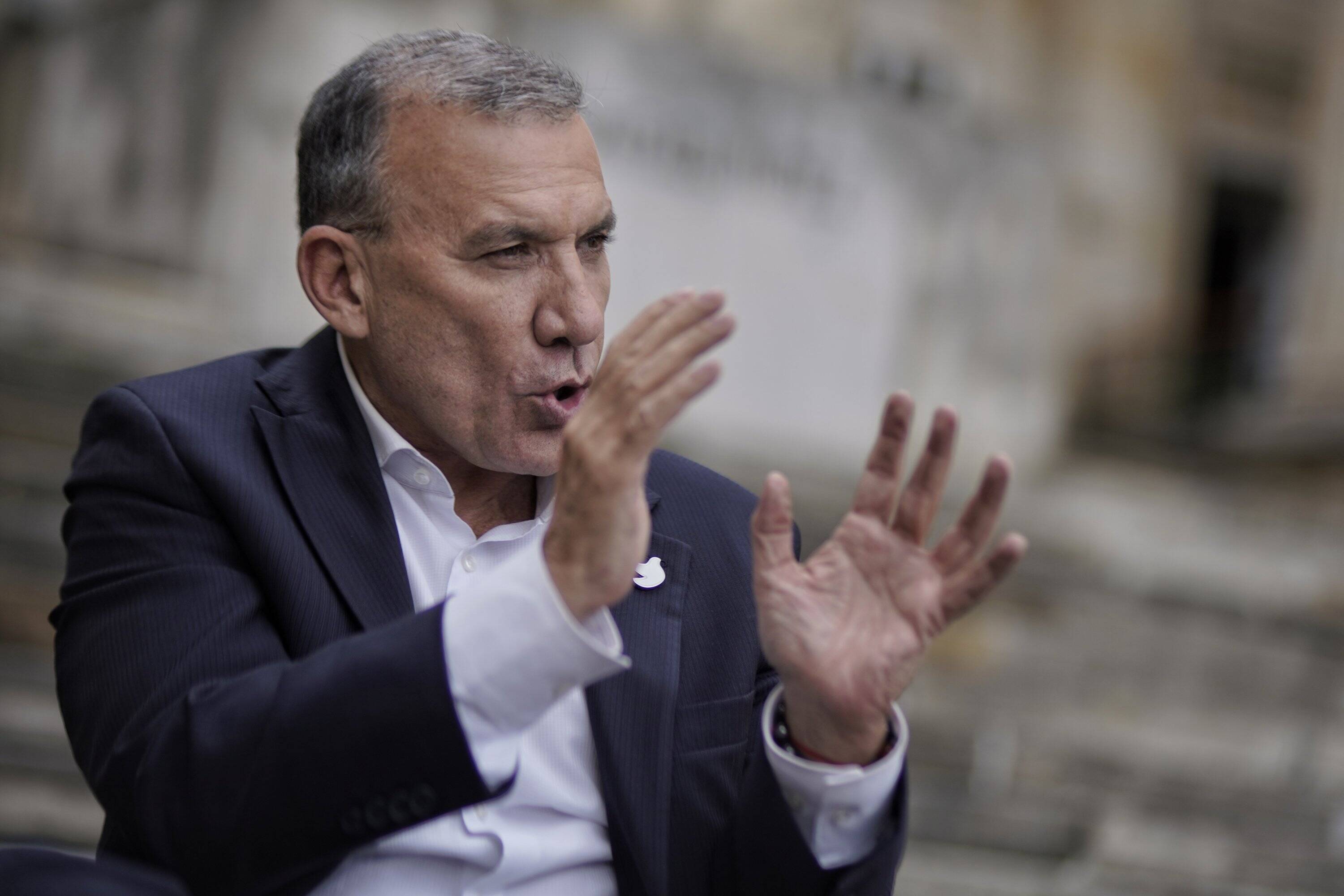
Roy Barreas, former Senate President. Photo: Sergio Acero. EL TIEMPO
It's not that Petro won because liberals supported him in large numbers; it's that liberal ideas, which are the history of Colombia, supported him. The ideas of liberal progressivism imply a government for all, not just for one sector, respect for private property, free enterprise, and institutions; not demolishing institutions, but making change a transition, a careful, agreed-upon, concerted process because reforms are possible. All reforms can be achieved through conversation, discussion, and dialogue.
When Gustavo Petro took office on August 7, 2022, one of the main points of his speech was that this should be a government for everyone. Were his expectations met? Have they governed for everyone? Reviewing the speech I gave in Bolívar Square three years ago, I found that some elements are unfinished. The promise of change is still pending, and there are things that have generated dissatisfaction. The government had to be and must be for all Colombians. The only enemies are the criminals who kill. That hasn't been done. That's the truth. One sector has been privileged, and a discourse has grown in which others are enemies. Three years ago, I said that there's no atmosphere in Congress if drug traffickers continue killing and extorting. For there to be the possibility of legislation that can bring them under control, bring them to justice, they have to stop killing. That hasn't happened. To achieve that, the state must be strong and legitimate, assert itself and subdue criminals, now more than ever. Offer them a path to submission, but what cannot happen is for the state to submit to criminals.
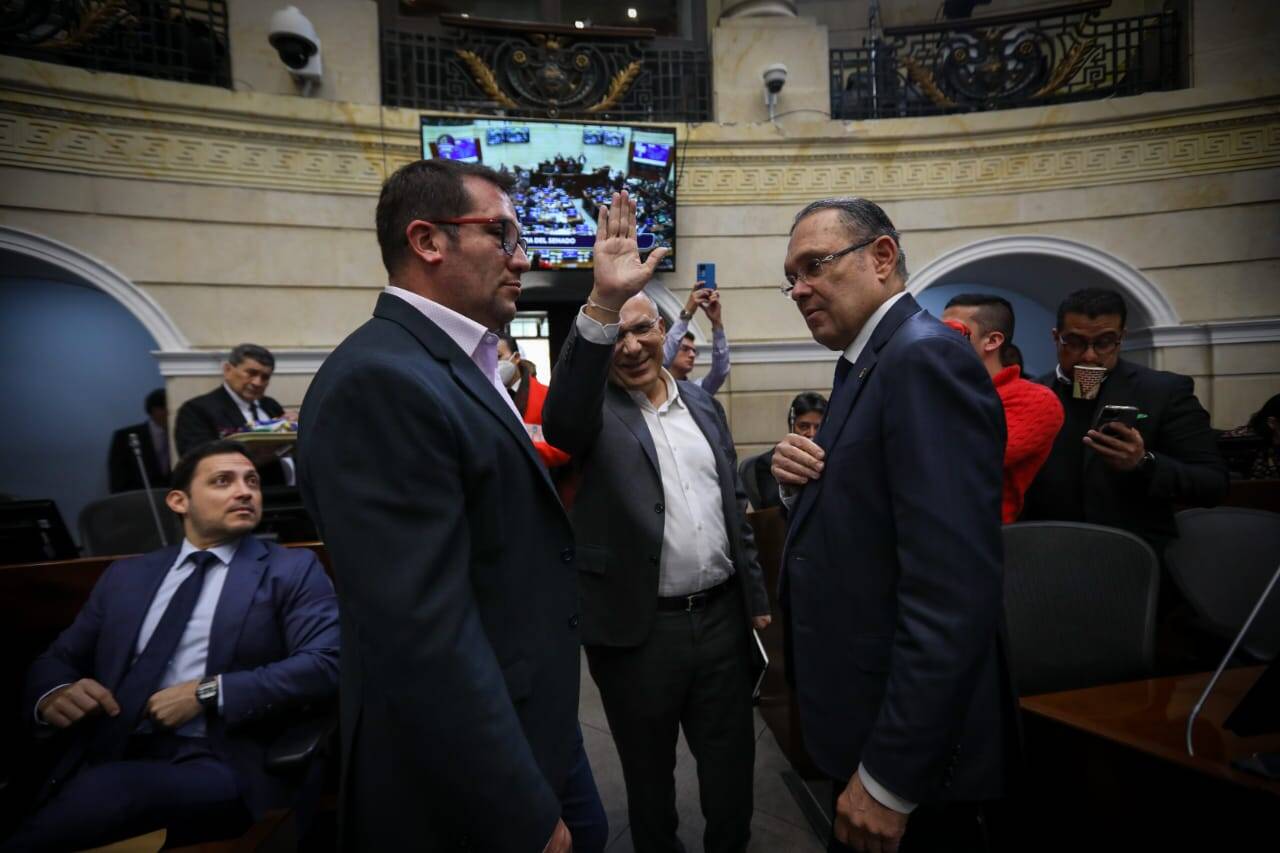
Roy Barreras on his last day in Congress. Photo: Mauricio Moreno. EL TIEMPO
It's not good. A government requires clarity and firmness in the conviction that social wounds must be healed and that the country must be more just. That requires a team. If the Colombian national team players are grappling with each other, we'll lose every game. That's not good. One of the problems for next year, and one of the risks we're warning about, is that some of the people surrounding the President not only ignore him, as he himself has said, but they also generate uncertainty, noise, and fear that doesn't serve the country or the President. They exacerbate the delusional people on the other side who are proclaiming scenarios of chaos and democratic catastrophes that won't happen. There will be elections; no one will break with democracy. President Petro won't shut down Congress, nor will he shut down media outlets, nor will he hastily hold constituent assemblies. That won't happen. President Petro has been subject to democracy through institutional channels for 35 years. What's going to happen is that in the remaining year there's a huge opportunity to do it right, if a few little voices out there stop making noise.
You say there will be elections, but how can we not doubt them when there are attacks on the Registry Office, when figures like Saade shout "reelection" in Congress, the Pact itself, and Minister Montealegre pulls decrees out of his hat? There are a lot of actions from the government itself that don't tell us today that there won't be elections, but they do sow doubt and set off alarm bells in the various institutions... If you look objectively, most of the leaders of the democratic left are preparing for elections. The country knows this; the Historic Pact is preparing its own referendum in October, where there will be a left-wing candidate, proposing a broad front with the participation of liberal sectors. That's democracy. So what's being prepared is a peaceful democratic handover. You're right; there are, I've said, mistaken, delusional voices that generate unnecessary noise. That's why I believe this is Petro's year, because it's the year in which he has the opportunity—and he will do so, I'm sure—to reaffirm his commitment to democracy and to the institutions. And it's also the year in which he has the opportunity to fulfill his promise, to make it a reality, to advance even further in the change. It's a key year if the team that accompanies him, instead of tweeting delusions, dedicates itself to working.
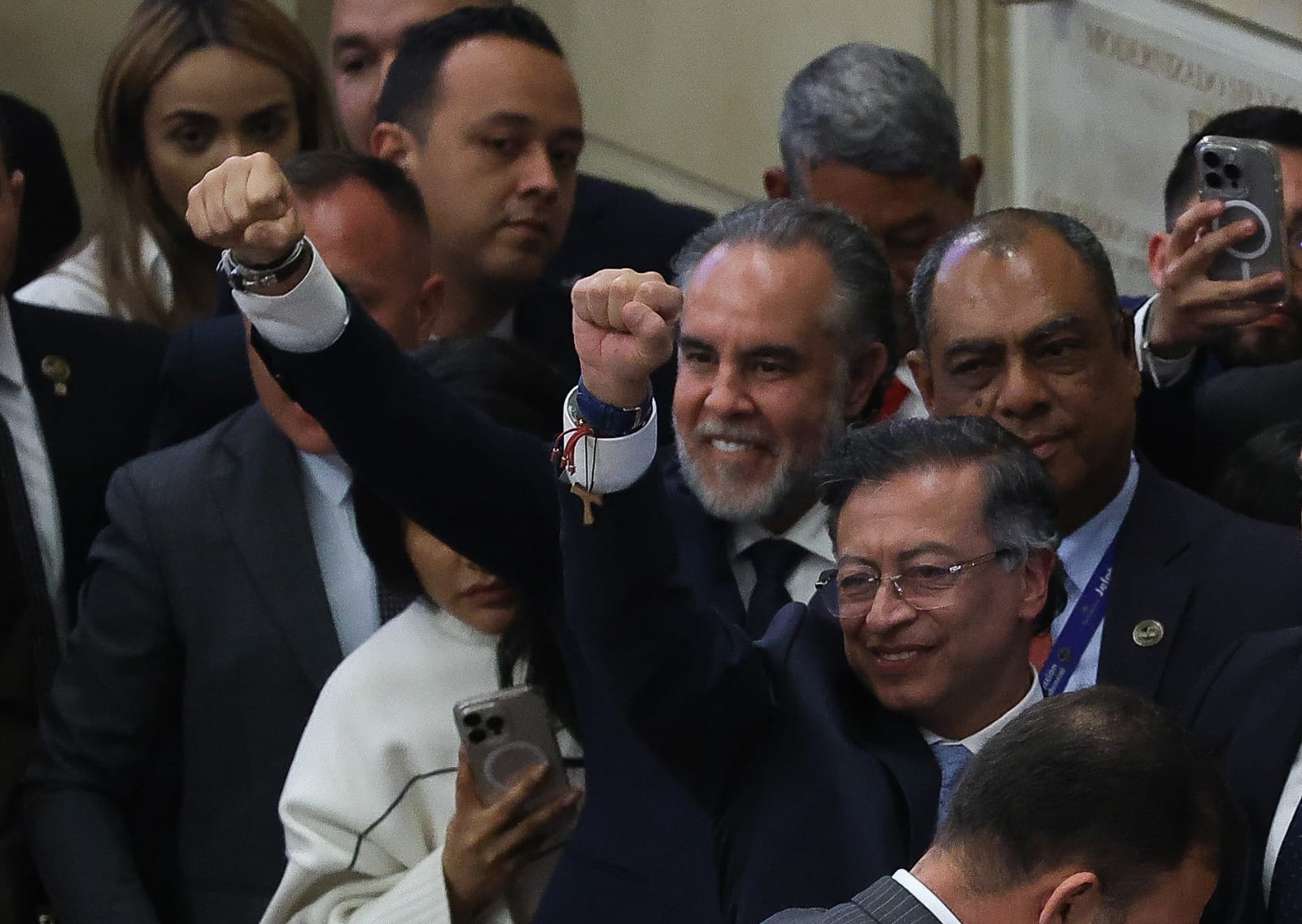
President Petro leaving Congress on July 20. Photo: Néstor Gómez. El Tiempo
The cabinet has changed. It was a first cabinet where there were some activists who, eager for change, wanted to override it. All reforms can be made, but they are transitions, and transitions require conversation, method, dialogue. They cannot be imposed. That's the result. By overriding them, the reforms took three years, and we're still waiting for the necessary health care reform. But there were also technicians brought in by President Petro and other people of liberal origin. That cabinet changed, and then activist voices increased, but I think in this final stage it changed again. And although there are activists and some technicians, some delusional voices emerged. That doesn't help the President. The President knows this is his year to end well and that his enormous success with history is achieving social change and healing the social wound, so that the country feels better, more just, and more peaceful within a year; and not with more uncertainty, more fear.
If you go to the Palace tomorrow to speak with the President, what advice would you give him for these last 12 months? I have an ongoing, affectionate, and respectful conversation with the President, despite our ideological and methodological differences. What I would say and what I say to the President is what I just shared. This is Petro's year, the year in which he will reaffirm his commitment to the institutions and the year in which he will ensure that the process of change continues stable, peaceful, and safe for all Colombians. That is this year's challenge. For everyone's peace of mind, Colombia's institutions have always prevailed. As long as we cling to the institutions without losing our resolve for change, Colombia will be better and better.
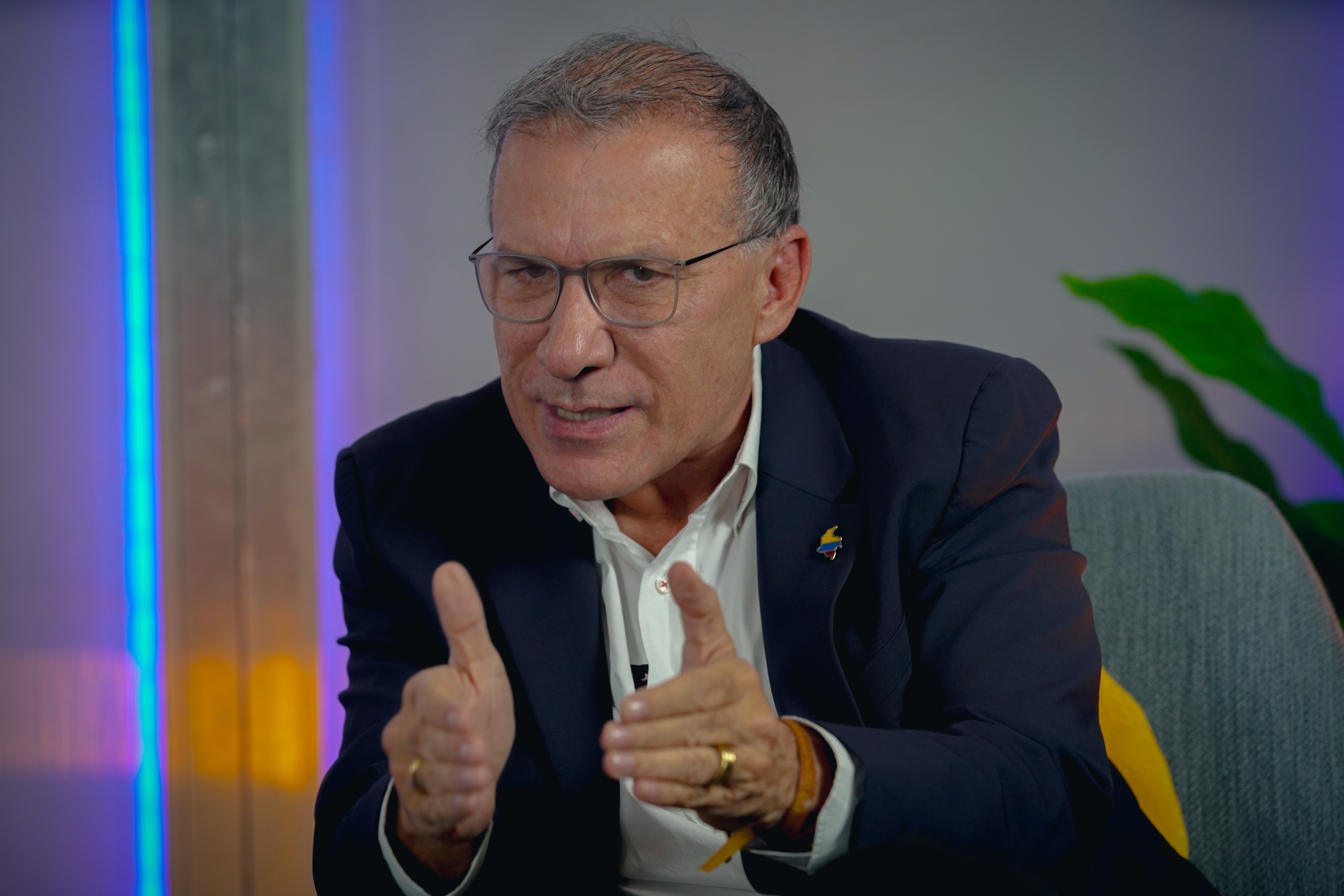
Roy Barreras, former senator and ambassador, in an interview with EL TIEMPO. Photo: Sebastián Arango. EL TIEMPO
Governments, when they take office, are required to have all the reforms they intend to present completed and studied by 3 p.m. on August 7th. People prepare not only to win elections, but to govern. You have to have knowledge and experience. On August 7th, there's no time for learning curves. I say this three years into this administration because a lot of time was wasted. Many ministers, surely in good faith, didn't have their homework done the first year and didn't present the reforms in time to present them now, in the last year, with great difficulty. I trust Congress. I know that those who were my colleagues are currently in the midst of the democratic electoral process, which is why there will be elections; they will have time to push through some of the things the country needs.
Speaking of elections, what role will you play? What have you thought? I came here because I have an obligation to help move Colombia forward. I'm an optimist, but we have to come here to help unite the country. I know how to do that, and it's my first task. In addition to that task, we have to listen to the Colombian people. I'm going on a nationwide tour in a couple of days because I want to find out something curious that's happening: some graffiti is appearing saying, "It's Roy."
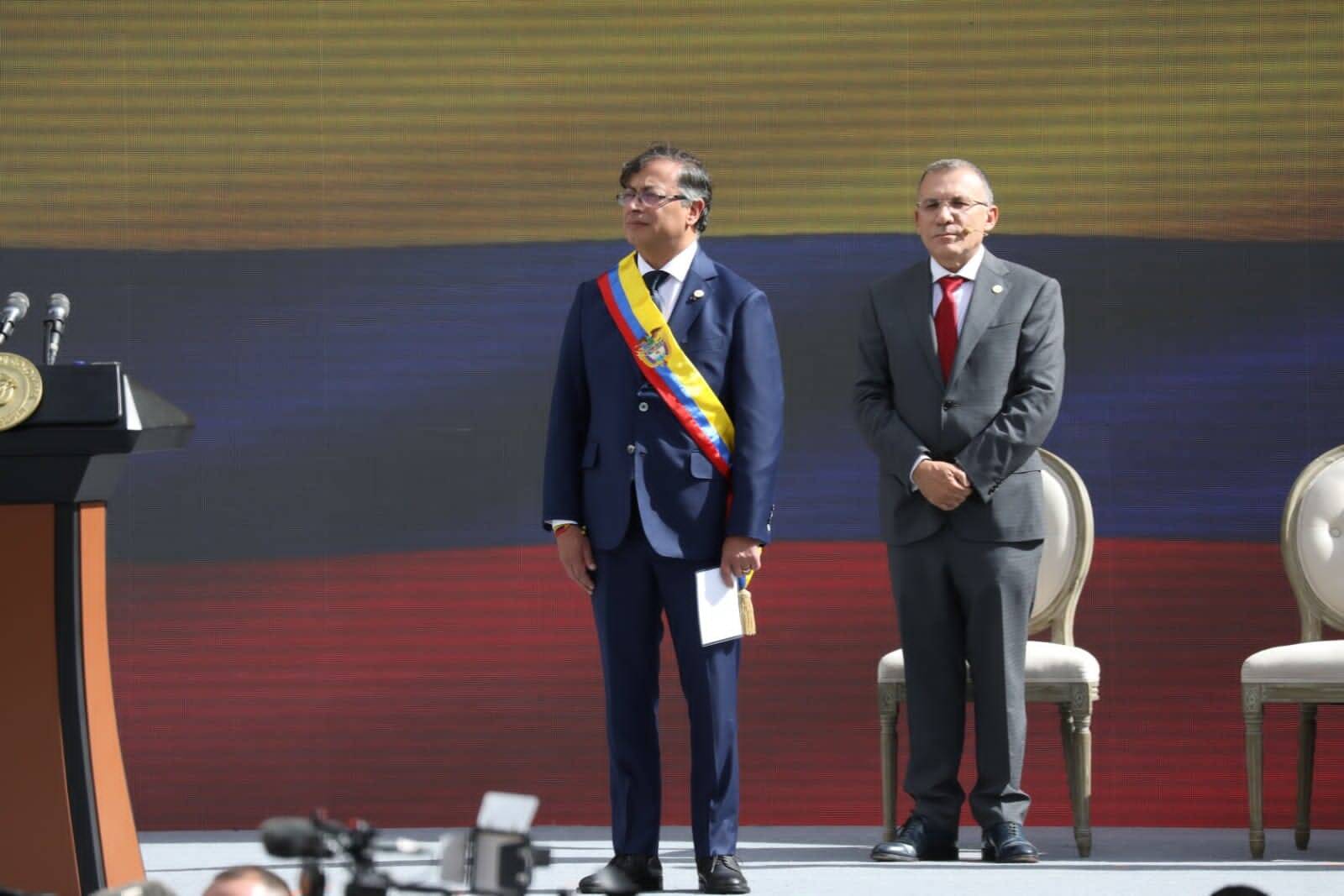
Gustavo Petro with the Speaker of Congress, Roy Barreras. Photo: Mauricio Moreno. EL TIEMPO.
I want to know why, who's writing that. I'm going to go everywhere. As a doctor, no wounded person can move forward; first, the wounds must be healed. Colombia has social wounds, wounds of hatred. Only if Colombia is united can it move forward. It can't happen that next year half the country defeats the other half. We all have to be united because Colombia faces enormous challenges, but also enormous opportunities.
But then today he doesn't rule out his presence on the ballot, either in the inter-party elections in March or the first round in May... You know what I see? Imagine a pool with 75 candidates in it, pulling each other's hair, jostling. It's a mess in the pool, and very few are thinking about reaching the goal, which is to lead Colombia to solving the people's problems. Who's going to jump into a pool full of 75 people hitting each other in the face? What we need here is a clear path to solving the people's problems, and that's done by listening to the people. We'll see what happens in the medium term, where we can be useful to help heal the wounds and unite Colombia. Colombians know they can count on me.
Watch the full interview eltiempo





